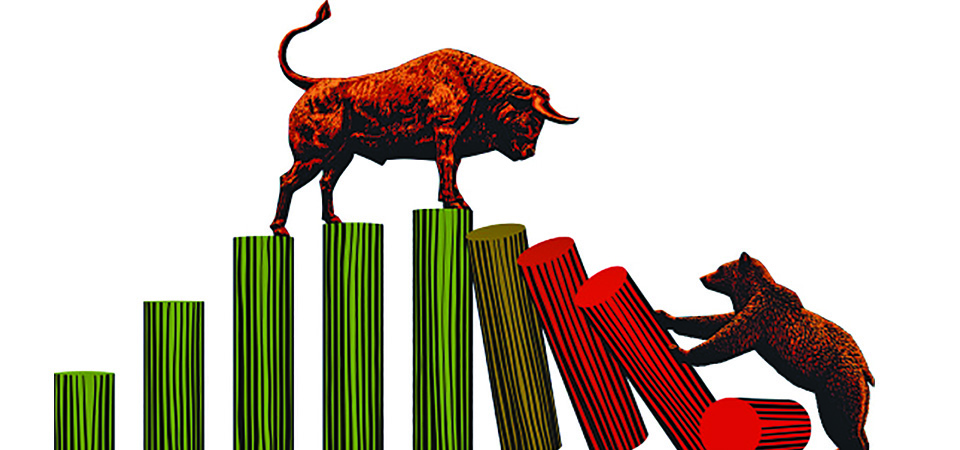How long will the bull rein in share market?

By Modnath Dhakal
Kathmandu, Feb. 22: Share market in Nepal has continued to make records in terms of rise in the index as well as transaction amount but many still worry whether the bullish trend would continue for a foreseeable future.
The Nepal Stock Exchange (NEPSE) index reached 2640.34 points on Sunday making an all-time record. By the end of the previous fiscal year 2019/20 in mid-July, the index was at 1362.4. It was the time when the market was gradually opening and investors began to make securities transaction in an online system.
The market had got a correction in pre-coronavirus period when it had reached 1881 points and witnessed a bearish trend to lose more than 500 points.
In less than eight months' period, the share market index has almost doubled. And experts say this bullish trend would continue in the days to come.
Reasons – low interest rate in margin lending, disposable liquidity with the investors as well as the new entrants of the share markets and political uncertainty.
The government and regulators of the financial markets – the Nepal Rastra Bank and Securities Board of Nepal, and other concerned bodies generally do not make significant policy correction. As the country is in confusion about the election for the House of Representatives of the Federal Parliament, investors are confident that there would not be any untoward action or policy backlash on the capital market.
This time, the market was not just gone up on the whims of a handful investors but is witnessing a growth on solid grounds of technological advancement, market expansion, liquidity and investors' awareness, said Prakash Tiwari, a stock market analyst.
According to him, the share market has made bounds after political turmoil or disasters like the Royal Palace Massacre, civil war and coronavirus pandemic. The post-COVID bullish performance can be attributed to the trend.
"Meanwhile, the capital market in the country had undergone a massive automation. The online share transaction platform and electronic payment system had proved a massive incentive to the share market investors," said Tiwari.
Electronic demat registration and share transaction increased the access of people from the remote areas to the share market. As a result, the Initial Public Offerings (IPOs) that announced after the COVID-19 lockdown had witnessed massive application. For instance, Nepal Infrastructure Bank's IPO was applied by more than 1.47 million applicants for 167.21 million units of shares.
Recent IPO of Mahila Laghubitta Bittiya Sanstha, a class 'D' microfinance institution, was oversubscribed by 62 times. About 1.57 applicants applied for 24.61 million units of shares while the company had issued just 400,000 units of shares.
Former Chairman of Investors' Forum Raj Kumar Timilsina said that the comfortable interest rate and possibly growing liquidity due to the election would hold the market at least to the position it is at now.
"The market will not immediately go down. Investors gained more confident as the central bank did not review the interest rate in the mid-term review of the monetary policy," he said.
Recent News

Do not make expressions casting dout on election: EC
14 Apr, 2022
CM Bhatta says may New Year 2079 BS inspire positive thinking
14 Apr, 2022
Three new cases, 44 recoveries in 24 hours
14 Apr, 2022
689 climbers of 84 teams so far acquire permits for climbing various peaks this spring season
14 Apr, 2022
How the rising cost of living crisis is impacting Nepal
14 Apr, 2022
US military confirms an interstellar meteor collided with Earth
14 Apr, 2022
Valneva Covid vaccine approved for use in UK
14 Apr, 2022
Chair Prachanda highlights need of unity among Maoist, Communist forces
14 Apr, 2022
Ranbir Kapoor and Alia Bhatt: Bollywood toasts star couple on wedding
14 Apr, 2022
President Bhandari confers decorations (Photo Feature)
14 Apr, 2022










